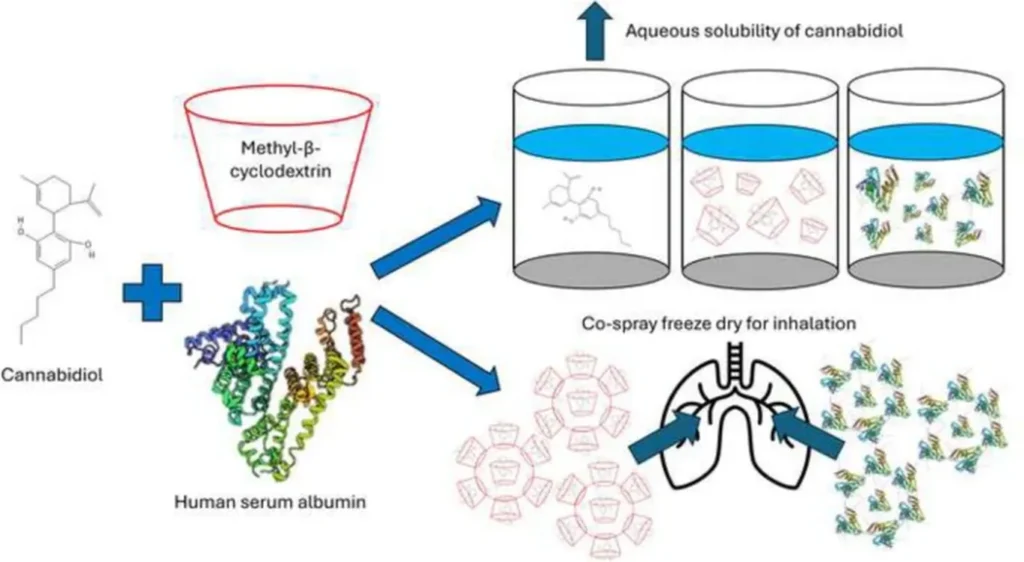A new study from researchers at the University of Sydney highlights the potential of inhalable cannabidiol (CBD) powder using methyl-β-cyclodextrin (mbCD) as a solubilizing agent to improve drug delivery.

The research, published in AAPS PharmSciTech, sought to overcome one of the primary challenges in pulmonary CBD delivery—its low water solubility. Scientists tested multiple solubilizers, including human serum albumin (HSA), β-cyclodextrin, and its derivatives, to determine which best enhanced CBD’s solubility. MbCD showed the strongest solubilizing effect across all tested concentrations, followed by HSA.
Using a spray freeze-drying method, the team created two inhalable powder formulations: CBD + mbCD and CBD + HSA. Both were amorphous and retained minimal residual solvent content. The mbCD formulation remained amorphous at up to 70% relative humidity, while the HSA version resisted recrystallization even at 90% humidity.
Performance testing revealed that although both powders released approximately 90% of the CBD content, the mbCD formulation had superior aerosol performance. Specifically, 53.5% of its particles were under 5 micrometers—ideal for deep lung delivery—compared to just 30.2% for the HSA formulation.
Researchers conclude that mbCD is a promising excipient for delivering CBD and potentially other cannabinoids through inhalation.







